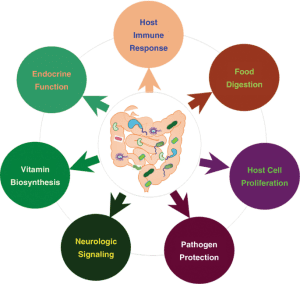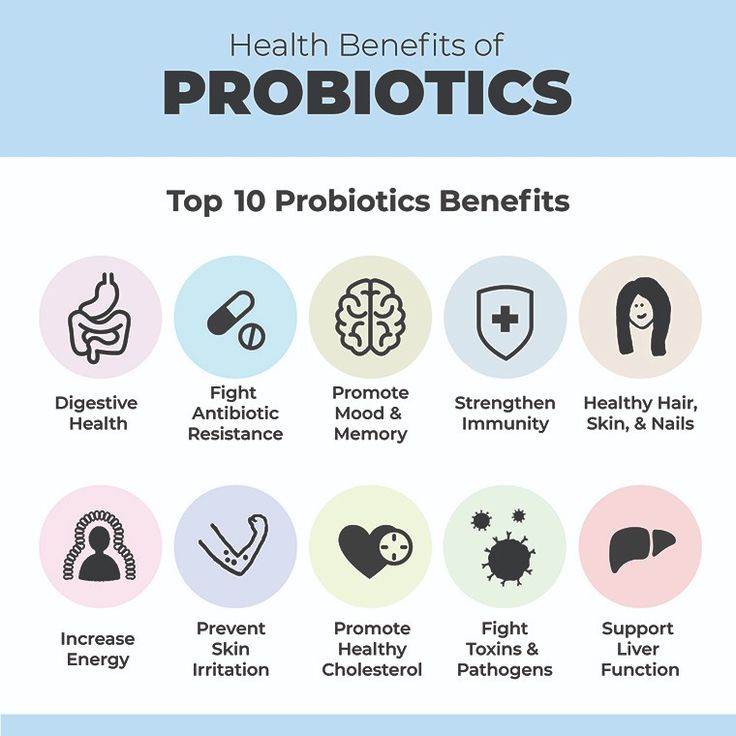Gut Health and the Role of Probiotics
Maintaining a healthy gut is essential for overall well-being, influencing everything from digestion to immune function. Probiotics, the beneficial bacteria residing in our digestive tract, play a significant role in gut health. In this blog, we’ll explore the importance of gut health, the benefits and potential downsides of probiotics, and practical tips on incorporating them into your diet.
Table of Contents
Gut health involves keeping a balanced community of microorganisms in your digestive tract.
These microorganisms, collectively known as the gut microbiome, are crucial for various bodily functions, including digestion, nutrient absorption, and immune response.



An imbalance in the gut microbiome can lead to digestive disorders, weakened immunity, and even affect mental health.
The Role of Probiotics in Gut Health
Probiotics are beneficial live microorganisms that, when consumed in appropriate amounts, can offer health benefits. They help maintain the natural balance of organisms in the intestines and are found in various foods and supplements. Common sources of probiotics include yogurt, kefir, sauerkraut, kimchi, miso, certain cheeses and medicines like “Physician’s Choice Probiotics 60 Billion CFU“


Enhanced Digestion: Probiotics assist in breaking down food and absorbing nutrients, which helps prevent digestive issues like irritable bowel syndrome (IBS) and diarrhea.
Boosted Immune System: A significant part of the immune system is located in the gut. Probiotics help reinforce the gut barrier, preventing harmful pathogens from entering the body.
Mental Health Support: The gut-brain connection is strong, with gut health influencing mood and cognitive functions. Probiotics can help improve mood and mental clarity by supporting this connection.
Inflammation Reduction: Probiotics can help decrease inflammation in the gut, potentially alleviating conditions such as inflammatory bowel disease (IBD).
Potential Downsides and Concerns
Initial Digestive Discomfort: Some individuals may experience gas, bloating, or diarrhea when starting probiotics. These symptoms typically subside as the body adjusts.
Risk of Infections: In rare cases, especially in individuals with compromised immune systems, probiotics can cause infections. It’s crucial to seek medical advice before beginning any probiotic regimen, particularly for those with serious health conditions.


Varied Effectiveness: The effectiveness of probiotics can vary based on the strain and the individual’s unique gut microbiome. Not all probiotics work the same for everyone.
Quality Issues: The quality and potency of probiotic supplements can vary. Some products may not contain the strains listed on the label or have enough live bacteria to be effective.


Tips for Consuming Probiotics Wisely:
Diversify Sources: Include a range of probiotic-rich foods in your diet, such as yogurt, kefir, sauerkraut, kimchi, and miso, to ensure you receive a variety of beneficial bacteria.
Start with Small Amounts: Introduce probiotics gradually to allow your digestive system to adjust. Slowly increase your intake as your body becomes accustomed to them.
Check Labels: When choosing probiotic supplements, look for products that specify the strains and colony-forming units (CFUs). Effectiveness depends on both the strain and the specific needs of the individual.
Support with a Fiber-Rich Diet: Probiotics thrive on fiber, so consume plenty of fruits, vegetables, whole grains, supper foods and legumes to nourish your gut microbiome.
Seek Medical Advice: It’s important to consult a healthcare provider before starting any new supplement, particularly if you have existing health conditions or are taking other medications.
Conclusion
Probiotics play a crucial role in maintaining gut health, which is vital for overall wellness. They offer numerous benefits, including improved digestion, enhanced immune function, and potential mental health improvements. However, it’s essential to approach probiotics with a balanced perspective, considering potential downsides and individual variability. By incorporating a variety of probiotic-rich foods into your diet and also there are some medicine available named Probiotics, you can effectively support your gut health and overall wellness.
Prioritize your gut health by making informed choices about probiotics and maintaining a balanced diet rich in diverse and nutrient-dense foods.
Related links:
Home Remedies for Rapid Constipation Relief
Pingback: 10 Quick and Powerful Home Remedies for Rapid Constipation Relief - buyhealthylifes.com
Pingback: 10 Quick and Powerful Home Remedies for Rapid Constipation Relief -
Pingback: 6 Amazing Health Benefits of Combining Green Tea with Lemon Juice -
Pingback: Turmeric and Its Anti-Inflammatory Properties -
Thanks for sharing. I read many of your blog posts, cool, your blog is very good.